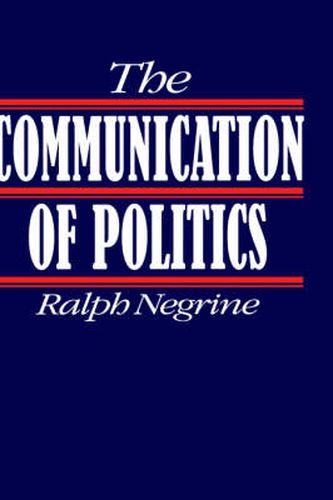Readings Newsletter
Become a Readings Member to make your shopping experience even easier.
Sign in or sign up for free!
You’re not far away from qualifying for FREE standard shipping within Australia
You’ve qualified for FREE standard shipping within Australia
The cart is loading…






How should those exercising power be made more accountable, and what roles should the mass media play in that process? Can the public monitor the exercise of power without the existence of a strong and inquisitive media? The Communication of Politics examines these and other questions vital to the debate on the media’s role in the democratic process. Ralph Negrine explores the complexity of the links between the media, the institutional political world and the public through case studies drawn from contemporary British politics and other political systems including the United States. He examines some of the often overlooked problems faced by the media in its efforts to create an ‘informed citizenry’. Questioning the practices that filter information and confronting the idea that information itself is unproblematic, Negrine shows why the essential task of uncovering truths remains elusive.
$9.00 standard shipping within Australia
FREE standard shipping within Australia for orders over $100.00
Express & International shipping calculated at checkout
How should those exercising power be made more accountable, and what roles should the mass media play in that process? Can the public monitor the exercise of power without the existence of a strong and inquisitive media? The Communication of Politics examines these and other questions vital to the debate on the media’s role in the democratic process. Ralph Negrine explores the complexity of the links between the media, the institutional political world and the public through case studies drawn from contemporary British politics and other political systems including the United States. He examines some of the often overlooked problems faced by the media in its efforts to create an ‘informed citizenry’. Questioning the practices that filter information and confronting the idea that information itself is unproblematic, Negrine shows why the essential task of uncovering truths remains elusive.